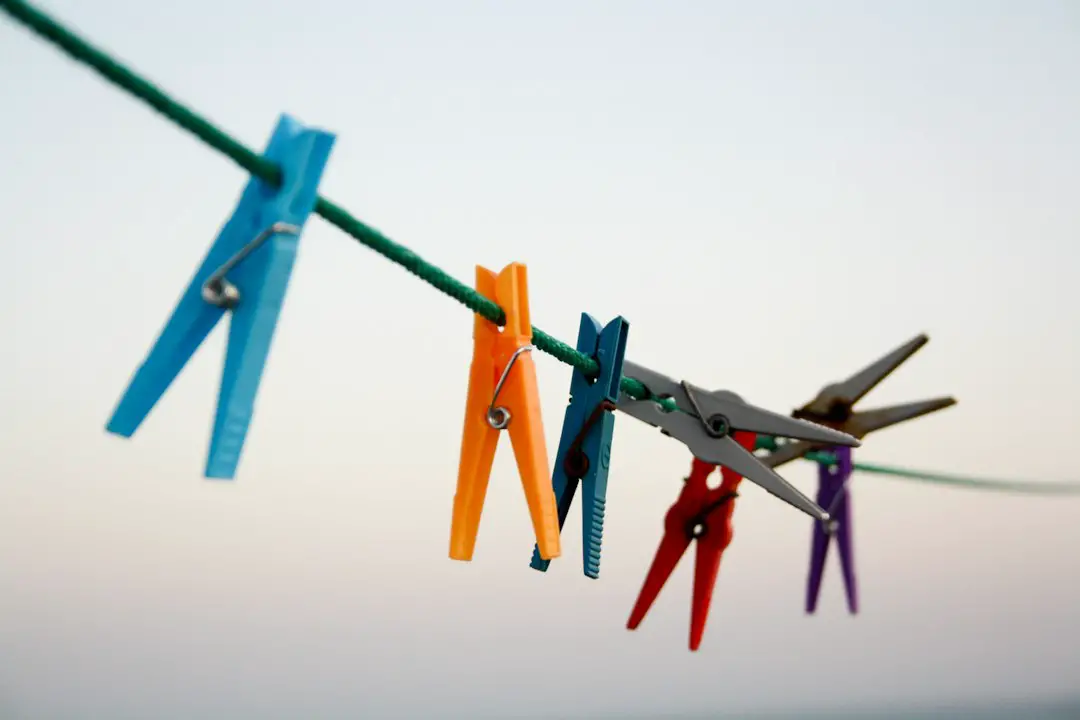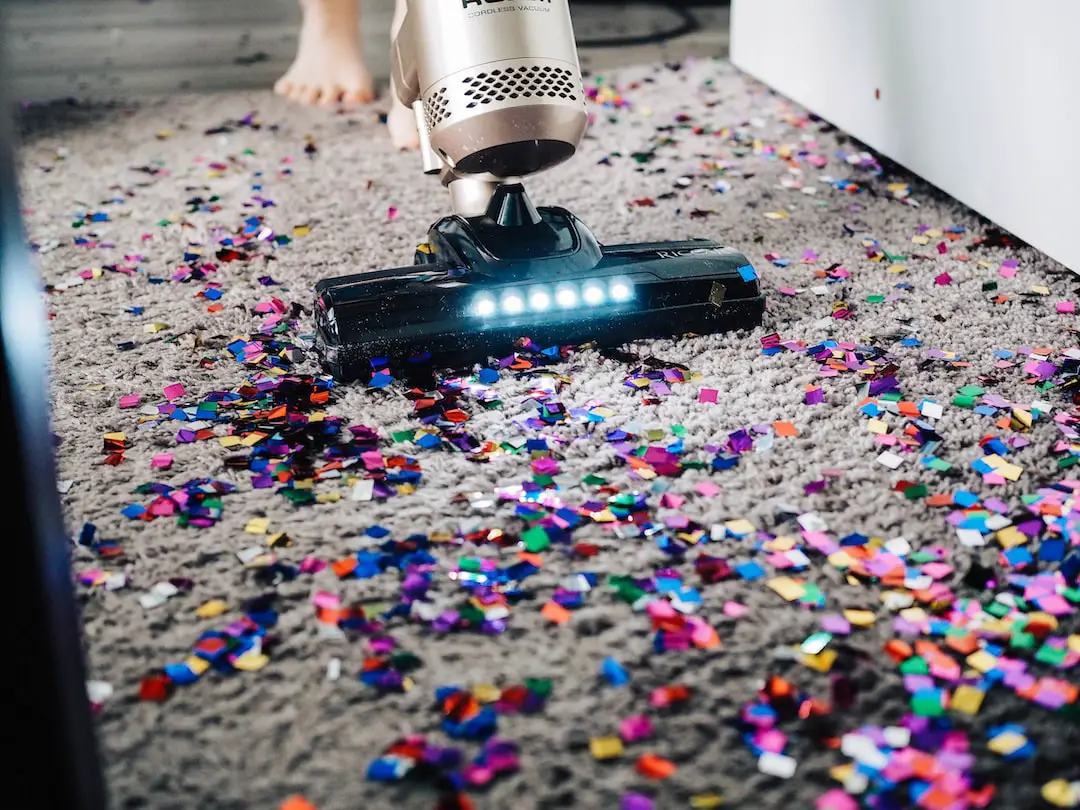Support our educational content for free when you purchase through links on our site. Learn more
Why Aren’t There Silent Vacuums? [2024]
Picture this: you’re enjoying a peaceful afternoon at home, sipping on your favorite beverage, when suddenly, the tranquility is shattered by the deafening roar of your vacuum cleaner. We’ve all been there, and it’s not a pleasant experience. But have you ever wondered why vacuum cleaners are so noisy? And more importantly, why aren’t there silent vacuums? In this article, we’ll delve into the science behind the noise, explore the possibilities of quieter vacuum cleaners, and answer all your burning questions on the topic.
Quick Answer
Vacuum cleaners aren’t silent because they rely on an electric motor to power a fan that creates suction. The noise is caused by the vibration of the motor and the movement of air through the machine. While efforts have been made to design quieter models, complete silence is unlikely due to technical limitations. However, there are vacuum cleaners available that are designed to be quieter than others, and additional sound-dampening accessories can further reduce noise levels.
Quick Tips and Facts:
- Vacuum cleaners are noisy due to vibrations and chaotic air flow.
- Efforts to design quieter models exist, but most people prefer the traditional vacuum sound.
- Companies invest in sound design for marketing purposes.
- A truly silent vacuum cleaner is unlikely to exist due to technical limitations.
Background: The Science of Vacuum Cleaner Noise

To understand why vacuum cleaners are noisy, we need to dive into the science behind the sound. Vacuum cleaners rely on an electric motor to power a fan that creates suction. As the motor spins, it generates vibrations that are transmitted through the machine’s structure, resulting in noise. Additionally, the movement of air through the machine creates turbulent airflow, which further contributes to the overall noise level.
Despite the noise, most people associate the sound of a vacuum cleaner with cleanliness. It has become a familiar and comforting sound, signaling that dirt and debris are being sucked away. In fact, some companies invest in sound design to create vacuum cleaners with a specific sound profile that consumers find satisfying.
What Causes Vacuum Cleaners to Be Noisy?
Vacuum cleaners are noisy because they use an electric motor to power a fan that creates suction. The sound is caused by the vibration of the motor and the movement of air through the machine. The specific factors that contribute to the noise level include:
-
Motor Vibration: The electric motor in a vacuum cleaner spins rapidly, generating vibrations that are transmitted through the machine’s structure. These vibrations create sound waves that we perceive as noise.
-
Airflow Noise: As air is drawn into the vacuum cleaner and passes through the fan and other components, it creates turbulent airflow. This turbulent airflow generates additional noise, adding to the overall sound produced by the machine.
-
Mechanical Components: Various mechanical components, such as belts, brushes, and bearings, can also contribute to the noise level of a vacuum cleaner. These components may produce additional vibrations or friction noise.
-
Design and Construction: The design and construction of the vacuum cleaner can impact its noise level. Factors such as the materials used, the quality of the components, and the overall design can influence how effectively the machine dampens vibrations and reduces noise.
Can Vacuum Cleaners Be Made Quieter?
Yes, vacuum cleaners can be made quieter through various design and engineering techniques. Manufacturers have made significant advancements in reducing the noise levels of vacuum cleaners over the years. Some of the methods used to make vacuum cleaners quieter include:
-
Sound-Dampening Materials: By incorporating sound-dampening materials into the construction of the vacuum cleaner, manufacturers can reduce the transmission of vibrations and absorb sound waves. These materials can include foam padding, rubber gaskets, and vibration-absorbing mounts.
-
Improved Motor and Fan Design: Manufacturers can optimize the design of the electric motor and fan to minimize vibrations and turbulence, resulting in quieter operation. This can involve using precision-balanced components, reducing friction, and improving airflow dynamics.
-
Insulation: Adding insulation to the vacuum cleaner can help reduce noise by absorbing sound waves and preventing their transmission. Insulation materials can be applied to the interior of the machine or incorporated into the housing.
-
Noise-Reducing Accessories: Some vacuum cleaners come with noise-reducing accessories, such as specialized brush heads or attachments that help dampen noise. These accessories can help reduce the noise level without compromising the cleaning performance.
While these techniques can significantly reduce the noise level of vacuum cleaners, complete silence is unlikely to be achieved due to the inherent nature of the machine’s operation. However, the advancements in design and engineering have resulted in vacuum cleaners that are noticeably quieter than their predecessors.
Are There Any Vacuum Cleaners That Are Completely Silent?
No, there are currently no vacuum cleaners that are completely silent. Despite the advancements in design and engineering, it is challenging to eliminate all noise from a vacuum cleaner. The operation of the electric motor and the movement of air through the machine will always generate some level of sound.
However, there are vacuum cleaners available that are designed to be quieter than others. These models incorporate the techniques mentioned earlier, such as sound-dampening materials, improved motor and fan design, and insulation. When shopping for a quieter vacuum cleaner, look for models with lower decibel ratings, as this indicates a quieter operation.
Additionally, you can further reduce the noise level of a vacuum cleaner by using additional sound-dampening accessories, such as mufflers or noise-reducing brush heads. These accessories can help minimize noise without compromising the cleaning performance.
What Are Some Ways to Reduce the Noise Level of a Vacuum Cleaner?
If you’re looking to reduce the noise level of your existing vacuum cleaner, here are some tips and techniques you can try:
-
Choose a Quieter Model: When purchasing a new vacuum cleaner, look for models with lower decibel ratings. These models are designed to operate at a quieter level and can significantly reduce noise compared to older or less efficient models.
-
Use Sound-Dampening Accessories: Some vacuum cleaners come with specialized accessories, such as mufflers or noise-reducing brush heads. These accessories can help dampen noise and reduce the overall sound level of the machine.
-
Regular Maintenance: Proper maintenance of your vacuum cleaner can help ensure it operates smoothly and quietly. Regularly clean or replace filters, check for loose or worn-out components, and lubricate moving parts as needed.
-
Vacuum During Off-Peak Hours: If you live in an apartment building or have neighbors in close proximity, consider vacuuming during off-peak hours to minimize noise disturbance. This can help maintain a peaceful environment for everyone.
Remember, while these techniques can help reduce the noise level of your vacuum cleaner, complete silence is unlikely to be achieved. However, by implementing these tips, you can create a quieter and more enjoyable vacuuming experience.
Is It Possible to Vacuum Without Making Any Noise?
No, it is not currently possible to vacuum without making any noise. The operation of a vacuum cleaner inherently involves the movement of air and the spinning of an electric motor, both of which generate sound. However, by using a vacuum cleaner with a lower decibel rating and implementing the techniques mentioned earlier, you can minimize noise disturbance and create a quieter environment.
Manufacturers are continually working on developing quieter vacuum cleaners as technology advances. While complete silence may not be achievable, future advancements may bring us even quieter vacuuming experiences.
FAQ

Why Aren’t There Quiet Vacuum Cleaners?
Vacuum cleaners are inherently noisy due to the operation of the electric motor and the movement of air through the machine. While efforts have been made to design quieter models, complete silence is unlikely to be achieved due to technical limitations. However, there are vacuum cleaners available that are designed to be quieter than others.
Why Are Vacuums Still So Loud?
Vacuums are still loud because they rely on an electric motor to power a fan that creates suction. The operation of the motor and the movement of air through the machine generate noise. Additionally, the sound of a vacuum cleaner has become familiar and comforting to many people, leading manufacturers to invest in sound design for marketing purposes.
Read more about “Quietest Shop Vac …: The Ultimate Guide to Silent Cleaning Machines”
Can Vacuum Cleaners Be Quiet?
Yes, vacuum cleaners can be made quieter through various design and engineering techniques. Manufacturers have made significant advancements in reducing the noise levels of vacuum cleaners over the years. These advancements include the use of sound-dampening materials, improved motor and fan design, insulation, and noise-reducing accessories.
Does a Silent Hoover Exist?
No, there are currently no vacuum cleaners, including Hoovers, that are completely silent. However, there are Hoover models and other vacuum cleaners available that are designed to be quieter than others. These models incorporate noise-reducing techniques to minimize the noise level during operation.
Conclusion

In conclusion, while complete silence may be elusive, vacuum cleaners have come a long way in terms of noise reduction. Manufacturers have made significant advancements in design and engineering to create quieter models. By incorporating sound-dampening materials, improving motor and fan design, and using insulation, vacuum cleaners can now operate at significantly lower noise levels.
When shopping for a quieter vacuum cleaner, look for models with lower decibel ratings and consider using additional sound-dampening accessories. Regular maintenance and vacuuming during off-peak hours can also help reduce noise disturbance.
While a truly silent vacuum cleaner may not exist, the advancements in technology have brought us closer to a quieter and more enjoyable vacuuming experience. So, embrace the hum of your vacuum cleaner as a sign of cleanliness and take comfort in the fact that you’re one step closer to a spotless home.
Recommended Links
- Quietest™: Quiet Home Appliances
- Quietest™: Quiet Electronics
- Quietest™: Silent Technology
- Quietest™: Noise Reduction Tips

